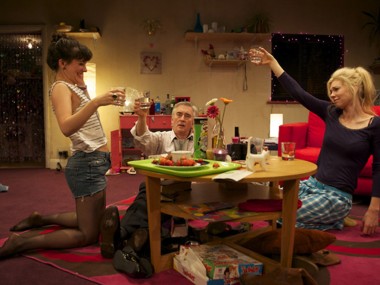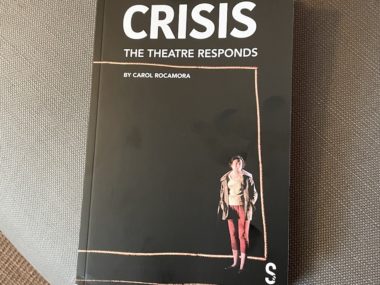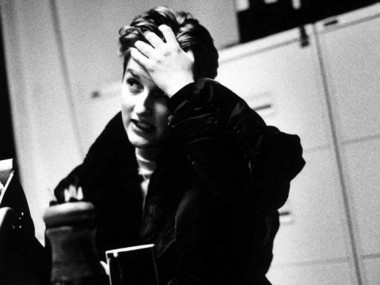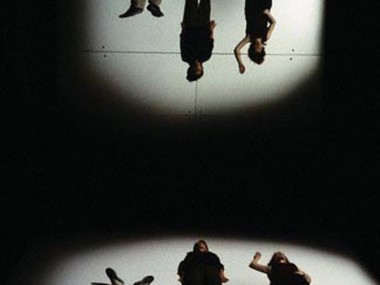A Brief Dictionary of Playwrights
Wednesday 1st July 2015
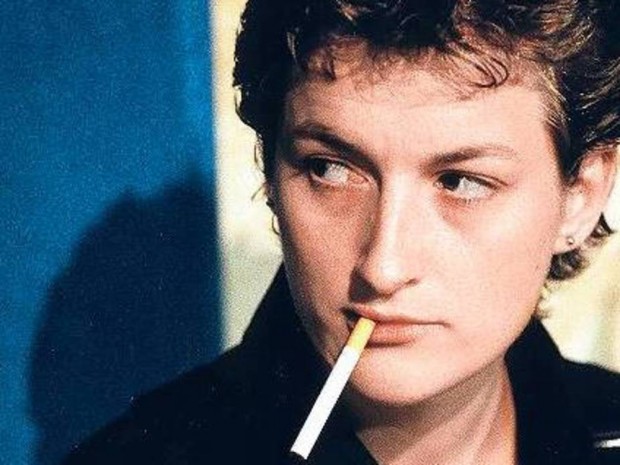
Explore the work of a handful of British theatre’s brightest and most exciting writing talents:
Kane-like adj. (theatre) (also: Kane-ish) Pertaining to the plays of Sarah Kane (1971—99). Style characterized by forceful depiction of extreme emotions, where the experience of pain or psychological anguish is presented as unassailable truth; often alleviated by bleak humour and a sentimental view of love. See also: Torn from the gut. (Blasted (1995), Cleansed (1998) and 4.48 Psychosis (2000).)
Crimpland noun. (theatre) (plural Crimpland) Description of the imaginative landscape typical of the work of playwright Martin Crimp (1954—). Style characterized by a coolly ironic detachment and a satirical perspective on social conditions, with unlikable characters and more often featuring daughters than sons. (Dealing with Clair (1988), Attempts on Her Life (1997) and In the Republic of Happiness (2012).)
Ridleyesque adj. (literature and art) (comparative more Ridleyesque, superlative most Ridleyesque) Pertaining to the work of artist and playwright Philip Ridley (1964—). Style characterized by the fusion of opposites: the real and the uncanny, the beautiful and the barbaric, menace and magic; often shocking and provocative, yet rooted in emotional truth. (The Pitchfork Disney (1991), Mercury Fur (2005) and Tender Napalm (2011).)
Neilsonian adj. (theatre) Description of the style of playwright and deviser Anthony Neilson (1967—). Using an innovative method of improvisatory rehearsal, Neilson produces dramas that mix excruciatingly painful emotional situations with a kind of blunt and brutal poetry. See also: In-Yer-Face Theatre. (Penetrator (1993), Stitching (2002) and The Wonderful World of Dissocia (2004).)
Ravenhillish adj. (theatre) Description of the linguistic style and dramatic landscape of playwright Mark Ravenhill (1966—). His writing is characterized by both ironic detachment and passionate engagement, often intellectually daring as well as deeply felt. See also: In-Yer-Face Theatre. Not to be confused with ravenhellish. (Shopping and Fucking (1996), Mother Clap’s Molly House (2001) and The Cut (2006).)
Butterworthian adj. (theatre) Description of the literary style of playwright and script-writer Jez Butterworth (1969—). Style characterized by high-octane imaginative flights of fancy rooted in a real feeling for British eccentricity and a love of Deep England, but more often featuring men than women. (Mojo (1995), The Winterling (2006) and Jerusalem (2009).)
greeny adj. (theatre and film) Description of the linguistic style of playwright and script-writer debbie tucker green (????—). Her writing is characterized by a reiterative insistence and a love of repetition that results in poetic passages, usually punctuated by fierce emotions. See also: In-Yer-Face Theatre. Not to be confused with Greeneland. (And yes, I know that her surname is actually tucker green.) (Dirty Butterfly (2003), Stoning Mary (2005) and Random (2008).)
© Aleks Sierz

